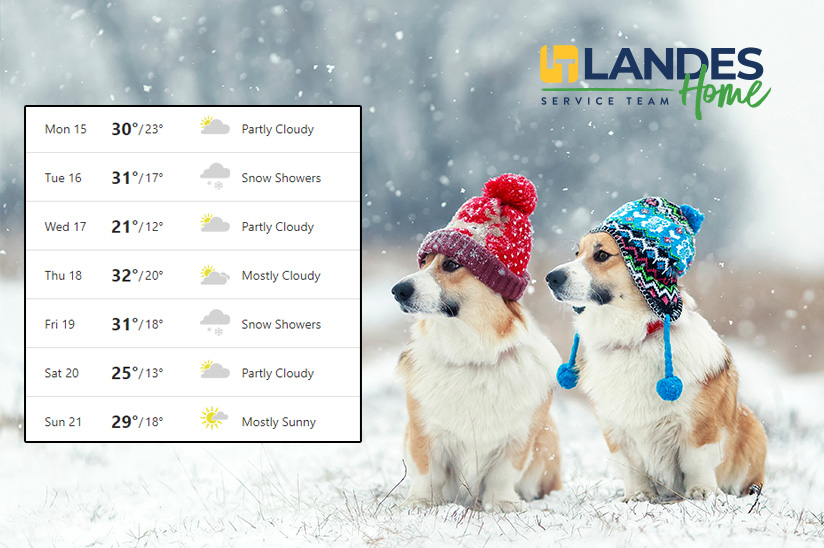Temperatures are going to be low in Bucks and Montgomery Counties this winter! IT Landes…
The Northeast and our service area has been in a pattern of inconsistent and unpredictable winter temperatures for quite some time, which has prompted several questions from our customers about the most efficient way to heat their homes. One question we often hear is can a smart thermostat help a home’s HVAC system perform better in response to frequent changes in temperature. To best answer this question, you first need to understand what a smart thermostat can do.
Smart thermostats offer the same advantages as programmable thermostats in that you can set them to automatically adjust the temperature of your home according to a pre-set time of day and/or day of the week. According to U.S. Department of Energy, homeowners can save approximately 10% in energy costs by lowering the thermostat setting 7◦ to 10◦ F for 8 hours per day. Homeowners often choose to set their thermostats lower while they are at work and during the overnight hours while they are sleeping, and a smart thermostat can manage these adjustments by automatically changing the temperature according to your schedule. Some can even learn your patterns and create a schedule automatically.
What sets a smart thermostat apart from a standard programmable thermostat is its ability to be accessed remotely over your home’s Wi-Fi network and its ability to provide usage data and reports. If you’re going to be away from home longer than expected or home earlier than expected, you can remotely access your thermostat and change the temperature setting, so you can continue to be efficient. Likewise, you can use the reporting features to find more ways to control your efficiency.
All thermostats respond to fluctuating temperatures and will keep your home at the temperature you’ve specified, so in that regard smart thermostats aren’t any better at responding to temperature changes than other thermostats. The efficiency gained by using a smart thermostat comes with how the homeowner uses it. Creating a schedule that lowers the home’s temperature during working hours or sleeping hours and having the ability to change the temperature remotely are the primary ways smart thermostats save energy and lower utility costs.
If you’d like to learn more about your thermostat options or you have questions about how to make your home more energy efficient, call 215-256-4221 or request an appointment with a trusted IT Landes HVAC expert.


